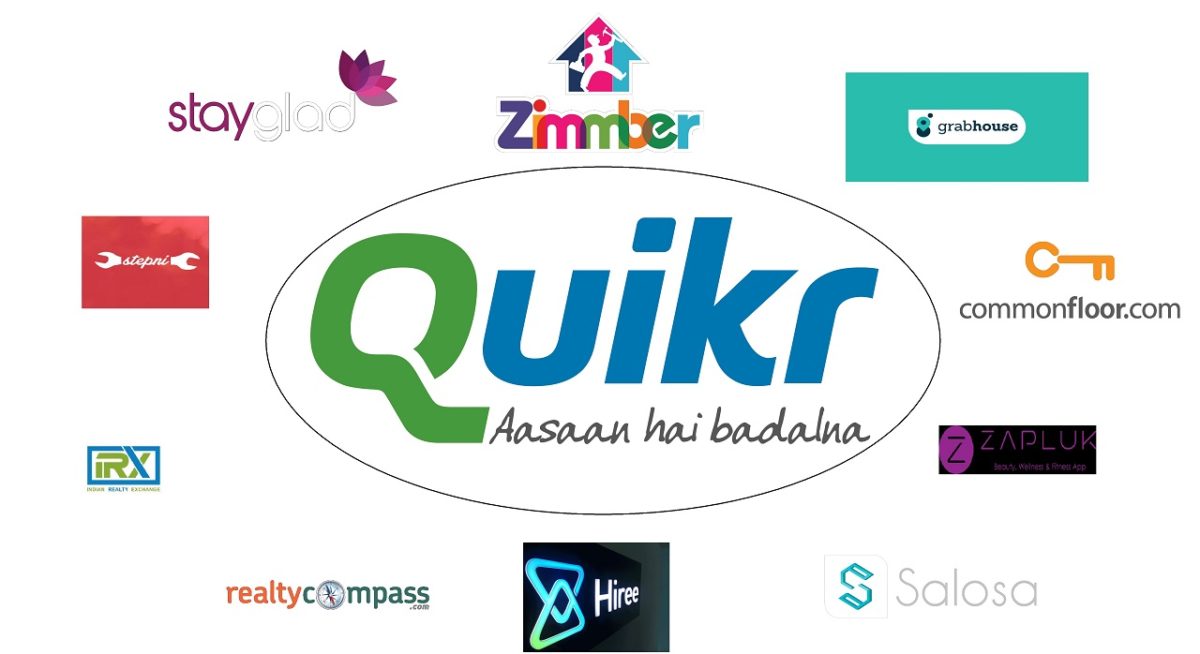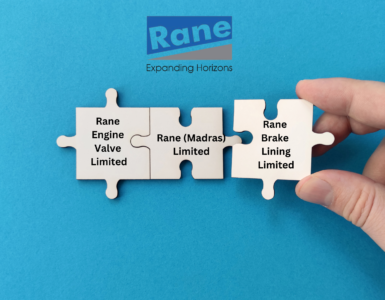In the Indian e-start-up business space, Quikr has become everyone’s envy. The pace at which it is acquiring companies to grow and diversify is remarkable. Since January last year, it has acquired around 8 companies, and the latest, it is buying two arms of HDFC’s brokerage business – HDFC Realty and the digital business HDFC Red in an all-stock deal.
It is estimated that the deal would be pegged around Rs 400 crore. In return, HDFC Ltd, the housing finance arm of HDFC Bank, will pick up 5% stake in Quikr, a leading online cross-category classifieds platform. The valuation of Quikr, one of a handful of homegrown unicorns (start-ups worth $1 billion), is pegged at around $1.5 billion, or around Rs 10,000 crore.
The acquisition of these two arms of HDFC Ltd will help Quikr to scale up its business as it strives to get into potential business areas like real estate, automobiles, jobs and other customer-related services. The acquisition will also help Quikr to generate leads in the real estate business and turn them into actual business deals. For HDFC, the deal will help it to sell loans as it can leverage on Quikr’s platform. The online real estate business has seen major consolidation and in the last few years.
The Quikr-HDFC deal
While the final contours of the deal is being worked, if the deal goes through Quikr will then have the distinction of acquiring five firms in the real estate space alone in the last two years. The acquisition of the brokerage business of HDFC will give Quikr access to more premium realty buyers, who need servicing for their real estate needs. The HDFC deal will help Quikr to push up revenue and take a leap in the business and penetrate deeper into new properties.
As per regulatory filings, Quikr had clocked net sales of Rs41 crore in the year ended March 31, 2016, against Rs 25 crore the year before. The company’s loss moved upto Rs 534 crore from Rs 450 crore in the same period.
About HDFC Red and HDFC Realty
Similarly, HDFC Realty had revenue of Rs 38 crore and a loss of Rs 34 lakh for fiscal 2015-16, according to the annual report of HDFC. HDFC Red, a digital real estate search platform, was founded in 2010 and is a wholly owned subsidiary of HDFC Ltd. HDFC Red’s owner, HDFC Developers Ltd, had revenue of Rs 6 crore and a loss of Rs 12.4 crore in the same period. It has invested Rs 30 crore in the subsidiary. HDFC Red has around 4500 developers and 9000 projects listed. It lists properties from 21 Indian cities. In March 2016, the company changed its model from an advertising-led one to a lead-based one and has started services business for builders.
HDFC Red offers a complete map and infrastructure around the vicinity for the homeowner. It also helps people to check the distance between home and office, school, hospitals etc. It has an app that customizes the user’s preference for a house. HDFC Ltd, the mortgage lender had a loan book of Rs 2.86 trillion as on December 2016. In 2015-16, it reported an annual profit of Rs 7,093 crore.
Past deals of Quikr
The 10-year old company, Quikr, had raised $350 million from investors such as Tiger Global, Kinnevik and Matrix Partners. Quikr’s successive acquisitions in one year are a reflection of the strategic growth the classified platform has demonstrated. The acquisitions were aimed at furthering the firm’s plan to go deeper into each of the verticals it had launched and wherever growth is picking up.
In 2005, Quikr had bought smaller companies like RealtyCompass and Indian Realty Exchange. Last year, it acquired Commonfloor, a Tiger Global management company, and Grabhouse. It also acquired Zimmber, Salosa, Stayglad and ZapLuk in the home segment. Quikr acquired Zimmber for about $10 million in an all-stock deal, to strengthen its position in the realty business.
In November 2016, it acquired Grabhouse reportedly for about $10 million in an all-stock deal. It was done with the aim of launching its cashless managed rentals solutions. The deal saw the integration of Grabhouse’s products and technology stack into QuikrHomes. The move helped Quikr’s verticalisation drive, under which the company has identified five key segments to explore new source of revenue. Grabhouse was backed by India Quotient, Sequoia Capital and Kalaari Capital. Post acquisition, Grabhouse has taken steps to reduce costs and accelerate revenue growth, benefitting from Quikr’s presence across different categories.
| Date | Acquired | Amount |
| May 5, 2017 | Zimmber | $10 million in all-stock deal |
| November 21, 2016 | Grabhouse | $10 million all-stock |
| September 13, 2016 | Stayglad | Deal size not disclosed |
| September 7, 2016 | Stepni | Amount not disclosed |
| August 24, 2016 | ZapLuk | Amount not disclosed |
| July 26, 2016 | Hiree | Amount not disclosed |
| May 10, 2016 | Salosa | Amount not disclosed |
| January 6, 2016 | Commonfloor | $200 million stock-and-cash deal |
| December 13, 2015 | Realty Compass | Amount not disclosed |
| November 6, 2015 | Indian Realty Exchange | Amount not disclosed |
Source: Crunchbase.com, news reports, company website
One of the biggest acquisitions for Quikr was the realty portal Commonfloor for $200 million in January 2016. The objective was to leverage Commonfloor’s structured data and domain expertise to amplify the growth of QuikrHomes. Commonfloor had five lakh active property listings from over 200 cities and New York-based Tiger Global had invested in both Quikr and Commonfloor.
Apart from real estate space, Quikr had earlier acquired another IDG Venture’s portfolio firm – online recruitment platform Hiree. With the Hiree acquisition, QuikrJobs claims to be leading the blue-collar hiring space and aims to tackle the white-collar job space in its next phase of growth. The merger helped to launch a new platform called QuikrJobs Pro. The platform enables both employers and recruitment consultants to sign up directly and track the candidate pipeline.
Quikr acquired Zapluk to scale up its beauty services brand AtHomediva by providing on-demand home beauty services in cities like Bengaluru, Delhi, Mumbai, Chennai, Gurgaon, and Hyderabad. Zapluk provided Quikr a substantial presence and a ready-made customer base in Hyderabad and Chennai. It acquired Stepni for vehicle advertising. In May 2016, Quikr acquired on-demand in-home beauty service provider Salosa and followed it up with the takeover of StayGlad in September, another beauty services provider to strengthen its beauty services.
With Real Estate Regulation and Development Act coming in, there is a lot of responsibility on property brokers. The violation of the Act can lead to fine of 10% of the cost of the project or a year in jail in case of misrepresentation to the buyers. As a result, property brokers will become what financial brokers became after Securities and Exchange Board of India was set up. Consolidation is taking place in the property broking business because of prolonged slowdown in residential sales which has also brought down the business of brokerages.
Similarly, in the classified market, there was a tremendous shift after 2008 when both Quikr and OLX started to focus in the Indian market aggressively as online classifieds work on the network effect principle. As per a Deutsche Bank report, the size of India’s online classifieds industry is expected to be around Rs 4,500 crore by 2018.
Going ahead
Over the past two years, Quikr has been diversifying into new businesses to boost sales. It is aggressively expanding into new businesses like automobiles, real estate, jobs and customer-to-customer sales to boost revenues. Most acquisitions does not involve any cash outflow and its shares are used as currency for acquisition. so, the acquisition results in
- Expansion of reach to newer or bigger market,
- New software and platform acquisition and
- Most important present team including promoters joining the company for long team as part-owner of the whole company.
It minimizes the risks for both the acquirer and the Target and also have continuity of team and services for all concerned. Now proposed acquisitions will add lot in terms of domain knowledge and good will of HDFC brand. As the realty market is around $180 billion and the housing market around half the size, there is a great potential for business in the future. Also, with the government’s push for affordable housing and housing for all, Quikr will see promising business opportunities ahead. It has to finalise the deal with HDFC and get going to chart a new revenue growth curve.




